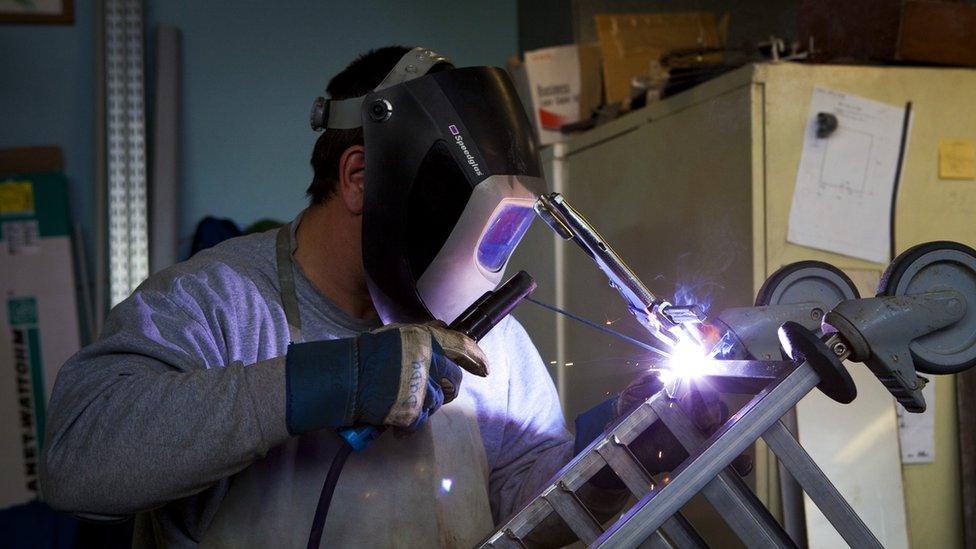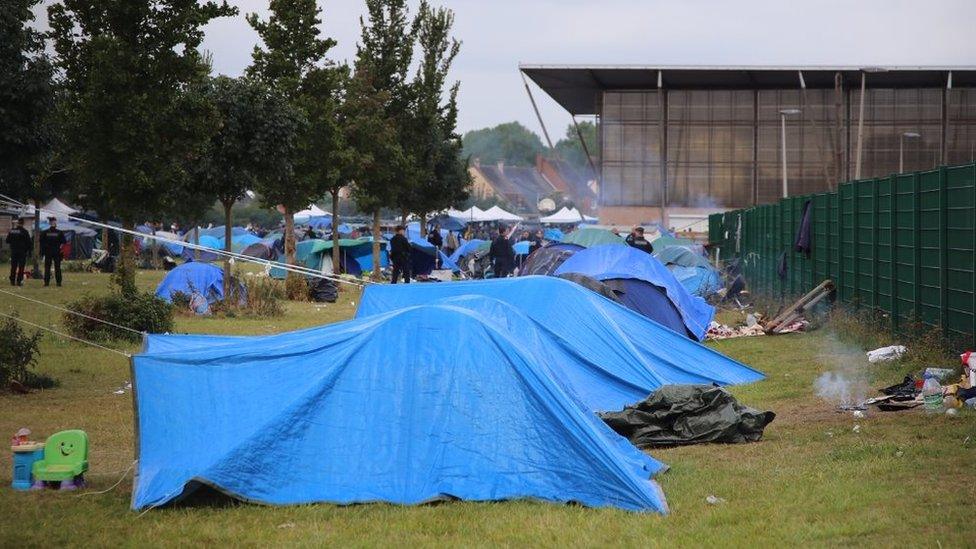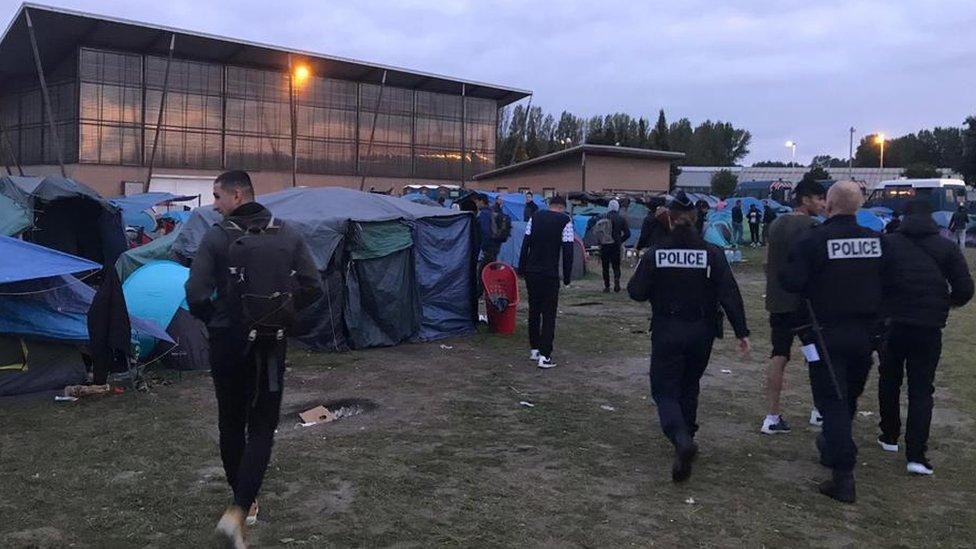France 'takes back control' with non-EU migrant quotas
- Published

France currently has strict conditions for employers to take on foreign workers (file pic)
France is to impose quotas on the number of foreign workers from outside the EU, as part of measures aimed at addressing concerns about immigration, asylum and integration.
"We want to take back control of our migration policy," said Prime Minister Edouard Philippe.
Access to medical care will be cut for those who have no right to stay.
Migrant tent camps that have sprung up in areas of north-eastern Paris are to be cleared by the end of the year.
France is one of many European countries that have struggled to respond to an influx of irregular migrants and the government is under pressure to react to the political challenge from the far-right National Rally of Marine Le Pen.
What is the situation now?
The number of asylum requests rose by 22% in 2018 to 122,743.

This camp near the French port of Dunkirk was cleared in September amid concerns that migrants were trying to cross the Channel
In a sign that the government was taking a tougher tone on migration, the prime minister said France was not an island and taking back control meant that when France said yes it meant yes, and no really meant no.
Mr Philippe did not openly challenge existing EU asylum rules although he made clear that immigration, along with the environment, had to be priorities for EU institutions and the main incentive was "sovereignty".
"Taking back control of our migration policy means fighting back against abuses of the right of asylum, against irregular migration. Our country will therefore play its part so that Europe rebuilds," he said.
Mr Philippe's reference to taking back control of migrant policy echoed language used by pro-Brexit campaigners ahead of the 2016 UK referendum on leaving the EU.
The dangers faced by migrants who cross the Channel
He said the government had found a fair balance between "rights and duties" without giving in to populism.
Several European countries have tightened their migrant policies in response to the influx into the EU that reached a peak in 2015.
Greece has seen a recent surge in numbers crossing from Turkey to the Aegean islands and last week parliament in Athens passed new measures aimed at speeding up the asylum process.
Mr Macron's government is considered centrist, drawing from both left and right, and the measures have not met with universal approval. Justice Minister Nicole Belloubet went on national radio on Wednesday to warn that she had "never considered quotas to be the answer".
How the quota system will work
Currently, employers who wish to hire from outside the EU have to follow a cumbersome system of explaining that a job cannot be filled by a French citizen.
The government has indicated it will adopt a new approach towards hiring migrant workers from outside the EU, with a view to the policies adopted by Canada and Australia. Australia uses a points-based system that focuses on professional and personal characteristics. Canada does too, with a cap on the number of workers applying for a visa without a job offer.
Labour Minister Muriel Pénicaud said on Tuesday that France had to recruit according to its needs and that quotas would be decided annually, with help from regional governments, job centres and social partners. The current number of migrant workers being offered visas is 33,000.
"We welcome [migrant workers] now, but not necessarily in jobs that are stretched. Conversely there are some jobs that are stretched which cannot be filled," she said.
The quotas will not take into account specific countries and migrant workers will be given a visa for a specific period and a specific job.
Although unemployment at 8.5% is relatively high for Western Europe, it has fallen from the rate of 10% when President Emmanuel Macron came to power in May 2017.
What are the other measures?
Many of the measures focus on migrants who do not have the right to stay in France.
The period of health cover will be reduced from 12 months to six, and those seeking asylum will have to wait three months before they can apply for basic cover.
France is keen to attract bigger numbers of students, doubling the current number to half a million by 2027. The prime minister said France was currently the world's fifth biggest host country for international students and risked losing out to countries such as China.
Rules on family reunions will be unchanged although the government has pledged to combat fraudulent reunions.
- Published17 September 2019
